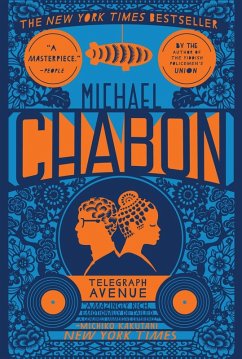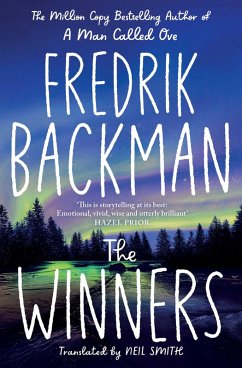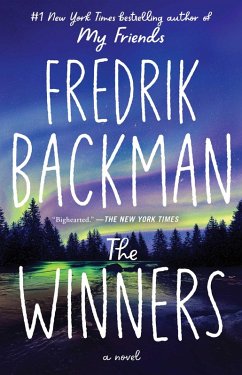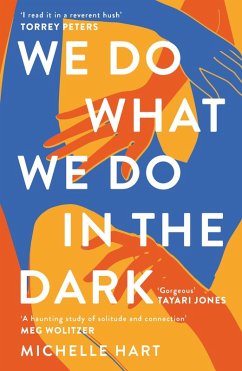
The Last Skipjack (eBook, ePUB)
Versandkostenfrei!
Sofort per Download lieferbar
7,99 €
inkl. MwSt.
Weitere Ausgaben:

PAYBACK Punkte
4 °P sammeln!
Mary Fox's The Last Skipjack brings to life a time not unlike our own, a time when ways of life were changing and those affected were "circling the wagons," trying to protect themselves from those changes. Specifically, in the 1960s in Cambridge, Maryland, small tenant farmers were losing ground to larger, more mechanized operations; the local factory and foundry were closing; skipjacks no longer dredged oyster beds, women were staying in school longer, and black youngsters were looking for civil rights. Some of Fox's characters are as confused about the causes and effects of such changes as t...
Mary Fox's The Last Skipjack brings to life a time not unlike our own, a time when ways of life were changing and those affected were "circling the wagons," trying to protect themselves from those changes. Specifically, in the 1960s in Cambridge, Maryland, small tenant farmers were losing ground to larger, more mechanized operations; the local factory and foundry were closing; skipjacks no longer dredged oyster beds, women were staying in school longer, and black youngsters were looking for civil rights. Some of Fox's characters are as confused about the causes and effects of such changes as the notorious Proud Boys are today. Others see clearly but have limited power to accelerate or to prevent the economic and social changes their neighbors fear-or crave. And a few-Celie, Gabe, Ava, Isaac-a few represent futures worth careful study.
The world of the novel is much like the one in which its author grew up. Life in Skipjack's Cambridge is rich in tiny adventures, annoying siblings, mediocre cooks, careless drivers, swimmers who don't know how to swim. We view these mainly through the eyes of two young girls, black Ava Skipton and white Celie Mowbray. In the process we come to understand a lot about how individuals are shaped, and how they shape others. Skipjack's world is peopled by well-intentioned parents and wise mentors, community leaders and small-scale rebels, and a handful of memorably hateful characters too. To survive in Cambridge, Celie and Ava master the etiquettes involved in speaking to landlords or tenants, to stupid classmates and potential lovers, to helpless toddlers or potential employers. And they learn the other "etiquettes" expected for interracial communications. They learn how subtle insults work, how compassion and manipulation work, and how shame gets imposed and accepted.
Fox presents her characters objectively, honestly, without nostalgia, but also without exaggeration. When Celie and Ava meet as ten-year-olds, they bond quickly and deeply. They are as wise as ten-year-olds can be-seeing and judging according to the complicated standards they've already started to absorb. As they grow, they find themselves judging those standards, adjusting them, understanding and resisting some of the pressures they create. Celie, enduringly optimistic offspring of tenant farmers, becomes a community health nurse in the poorest black part of town. Ava, self-repressing daughter to a sociopathic mother, joins a Black Power movement, intending to use her rhetorical skills to create positive change.
Those who have studied the Civil Rights movement may remember Cambridge, Maryland, as the site of arson and riots in 1963 and again in 1967. Fox brings it memorably to life.
The world of the novel is much like the one in which its author grew up. Life in Skipjack's Cambridge is rich in tiny adventures, annoying siblings, mediocre cooks, careless drivers, swimmers who don't know how to swim. We view these mainly through the eyes of two young girls, black Ava Skipton and white Celie Mowbray. In the process we come to understand a lot about how individuals are shaped, and how they shape others. Skipjack's world is peopled by well-intentioned parents and wise mentors, community leaders and small-scale rebels, and a handful of memorably hateful characters too. To survive in Cambridge, Celie and Ava master the etiquettes involved in speaking to landlords or tenants, to stupid classmates and potential lovers, to helpless toddlers or potential employers. And they learn the other "etiquettes" expected for interracial communications. They learn how subtle insults work, how compassion and manipulation work, and how shame gets imposed and accepted.
Fox presents her characters objectively, honestly, without nostalgia, but also without exaggeration. When Celie and Ava meet as ten-year-olds, they bond quickly and deeply. They are as wise as ten-year-olds can be-seeing and judging according to the complicated standards they've already started to absorb. As they grow, they find themselves judging those standards, adjusting them, understanding and resisting some of the pressures they create. Celie, enduringly optimistic offspring of tenant farmers, becomes a community health nurse in the poorest black part of town. Ava, self-repressing daughter to a sociopathic mother, joins a Black Power movement, intending to use her rhetorical skills to create positive change.
Those who have studied the Civil Rights movement may remember Cambridge, Maryland, as the site of arson and riots in 1963 and again in 1967. Fox brings it memorably to life.
Dieser Download kann aus rechtlichen Gründen nur mit Rechnungsadresse in A, D ausgeliefert werden.













